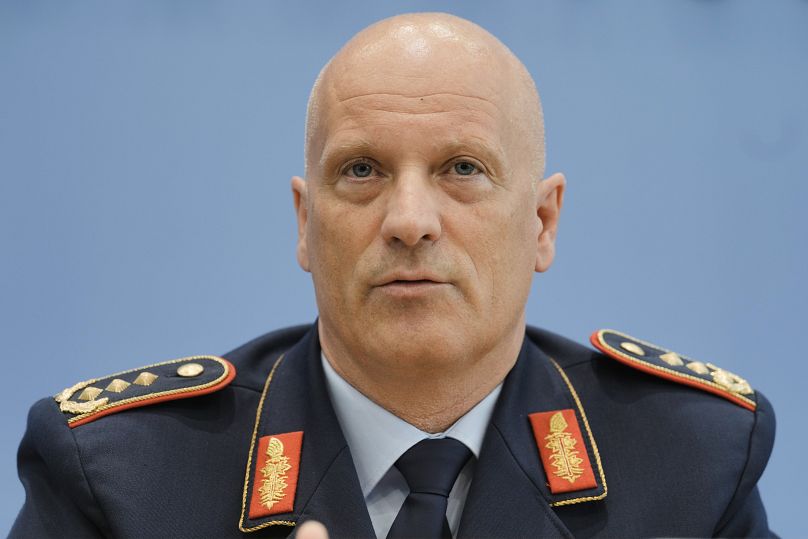Around 800 flights are being rerouted every day due to the 'Air Defender' exercise over Germany, Denmark and the Netherlands.
A massive NATO exercise over European skies could cause holidaymakers' flights to be delayed this week and next.
 ADVERTISEMENT
ADVERTISEMENT
 ADVERTISEMENT
ADVERTISEMENT
The multinational military alliance began its biggest ever air force deployment exercise on Monday 12 June.
‘Air Defender 2023’, as the training is called, will be centered over German airspace until 22 June.
“Approximately 800 flights will be rerouted daily as a result of the exercise and the associated measures,” air traffic management body Eurocontrol says.
The knock-on effects could cause significant delays at a busy time of year, when European airtraffic controllers are struggling to manage the post-pandemic boom in flying and French authorities are on strike.
The NATO drill involves 10,000 military personnel and 250 combat aircraft from 25 nations including the US.
“I know there could be restrictions on civil air traffic,” says Ingo Gerhartz, lieutenant general and inspector of the German Air Force which is managing the exercise.
But, the Luftwaffe chief adds, “when I see the ratio, ten days out of 365, so that at the end of the day we can also still live in peace and freedom in this country, I think that is the right signal that we have to send.”
Here’s what the manouevres could mean for your summer flight, and what’s behind it.
Where is European airspace closed?
Air Defender 2023 has blocked large areas of airspace to civilian aircraft - mainly, but not entirely, over Germany. Commercial pilots need to navigate around three main “clusters”:
- North, extending into Danish and Dutch airspace
- East, close to the Polish and Czech borders
- South (from Luxembourg along the French border, almost as far as Lake Constance by Switzerland)
Each of these zones are closed or heavily restricted for civilian airlines for several hours each day, though the exercise pauses over the 16 to 17 June weekend.
The South cluster could have a particularly significant impact on many holiday flights from the UK, travel expert Simon Calder points out for British paper the Independent.
Departures from London to Antalya in Turkey normally fly right through this area, he says, as do planes from Manchester to the Greek islands.
Which airports and airlines could be affected?
Of the 800 flights set to be rerouted, around 300 will have their routes extended by an average of 110km - adding up to around seven minutes of flying time at cruising speed.
That might not sound like much, but it could cause serious ripples given the finely-tuned web of flights across Europe.
The busiest airports, like London’s Heathrow and Gatwick, are set for the biggest scheduling headaches. Crew hours and night curfews mean not all delays can be absorbed.
While budget airlines like Ryanair that have less than a 30 minute turnaround between some planes arriving and departing could see delays stack up the quickest.
easyJet, the biggest airline at Gatwick, has sought to reassure passengers that “the impact on operations [will be] minimal.”
Lufthansa’s main hub of Frankfurt will also be restricted by the South cluster airspace closure.
What is the NATO exercise all about?
“This exercise is not directed against anyone,” says lieutenant general Gerhartz. “It is a defensive exercise to show that this alliance is capable of defending itself if it had to.”
The air forces’ manouevres are modelled on a ‘NATO Article 5 assistance scenario’ - which refers to a situation in which a NATO ally is under armed attack.
If Russia, for example, were to attack a Baltic nation like Estonia, NATO “will take the actions it deems necessary to assist the ally attacked.”
Gerhartz adds that the training period has been timed to finish before the school summer holidays start in Germany.











